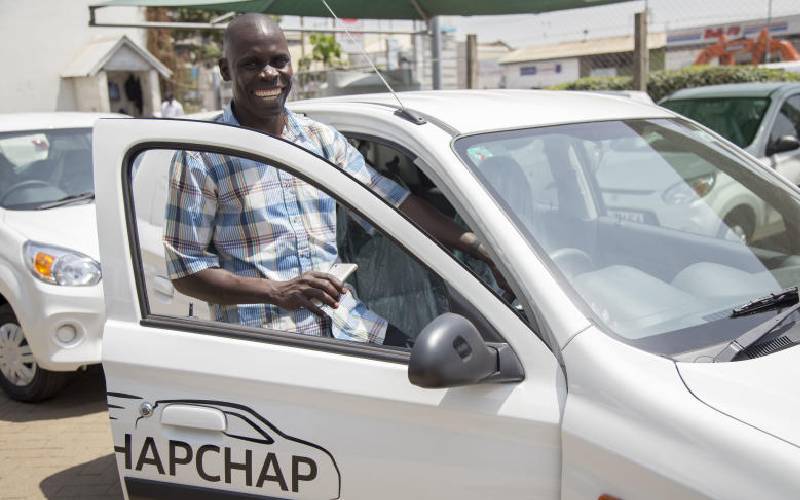
Want to start a taxi hustle? Here are the ins and outs of it
vehicle inspection certificate, Public Service Vehicle (PSV) car insurance certificate, national identity card, PSV driving licence, regular driving licence and Kenya Revenue Authority (KRA) PIN certificate.
“While partnering with Uber, it will take 28 per cent commission, while Bolt charges 20 per cent and Little Cab 15 per cent. Thus the more trips you take, the more money you make,” said James.
He said it is advisable to use a car with a small engine capacity (between 650cc and 1,300cc) to cut fuel costs and maximise profit.
According to James, the cheapest car for a digital taxi business goes for Sh550,000.
“Having a car with a small engine means that you will not need to fuel the vehicle frequently, thereby increasing your profit margins,” he said.
Investing in a new car or one that is well maintained also means fewer trips to the mechanic, saving you more money.
James said on average, he uses about Sh6,000 monthly to service his car.
On a good day, he said, he makes Sh5,000, but the amount can decline to as low as Sh1,000 depending on demand for his services.
With many digital taxi operators, James said saving is difficult, especially if one is servicing a loan, with the monthly take-home averaging about Sh20,000.
“The taxi business is very competitive, with one required to put in the hours to meet the monthly loan payments,” said James.
This forces drivers to enrol on multiple taxi-hailing mobile phone applications in a bid to attract as many customers as possible.
Loans also do not come cheap, with many drivers falling behind on payments due to the vagaries of Covid-19.
“If you took a loan of Sh600,000 to buy a car, you may end up paying up to Sh1.1 million,” said James.
He advised operators to look for corporate clients to ensure a steady income that can run up to Sh70,000 monthly.
Digital Taxi Forum Secretary-General Wycliffe Alutalala said the prevailing high fuel prices have worsened the operating environment for the digital taxi operators who are already reeling from the effects the Covid-19 pandemic.
But with the entry of a new App named My Ride, which promises to charge drivers a commission of 15 per cent, he hopes other companies will follow suit and lower their commission too.
Uber Head of East Africa Brian Njao, however, defended the firm’s commission of 25 per cent, saying it has to pay various levies to the government such as value-added tax and give customers incentives to spur demand.
“It’s a flat fee we charge across the board. If you think about it in terms of drops in demand and supply, it works differently from actually charging a fixed fee where when demand is low the fixed fee becomes expensive,” he said.
